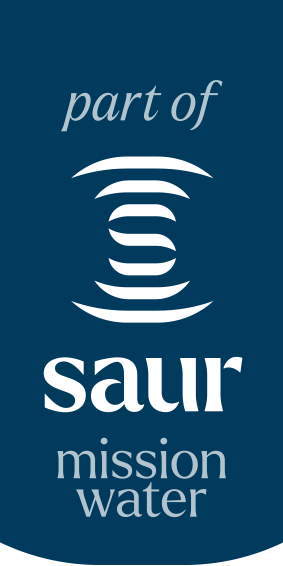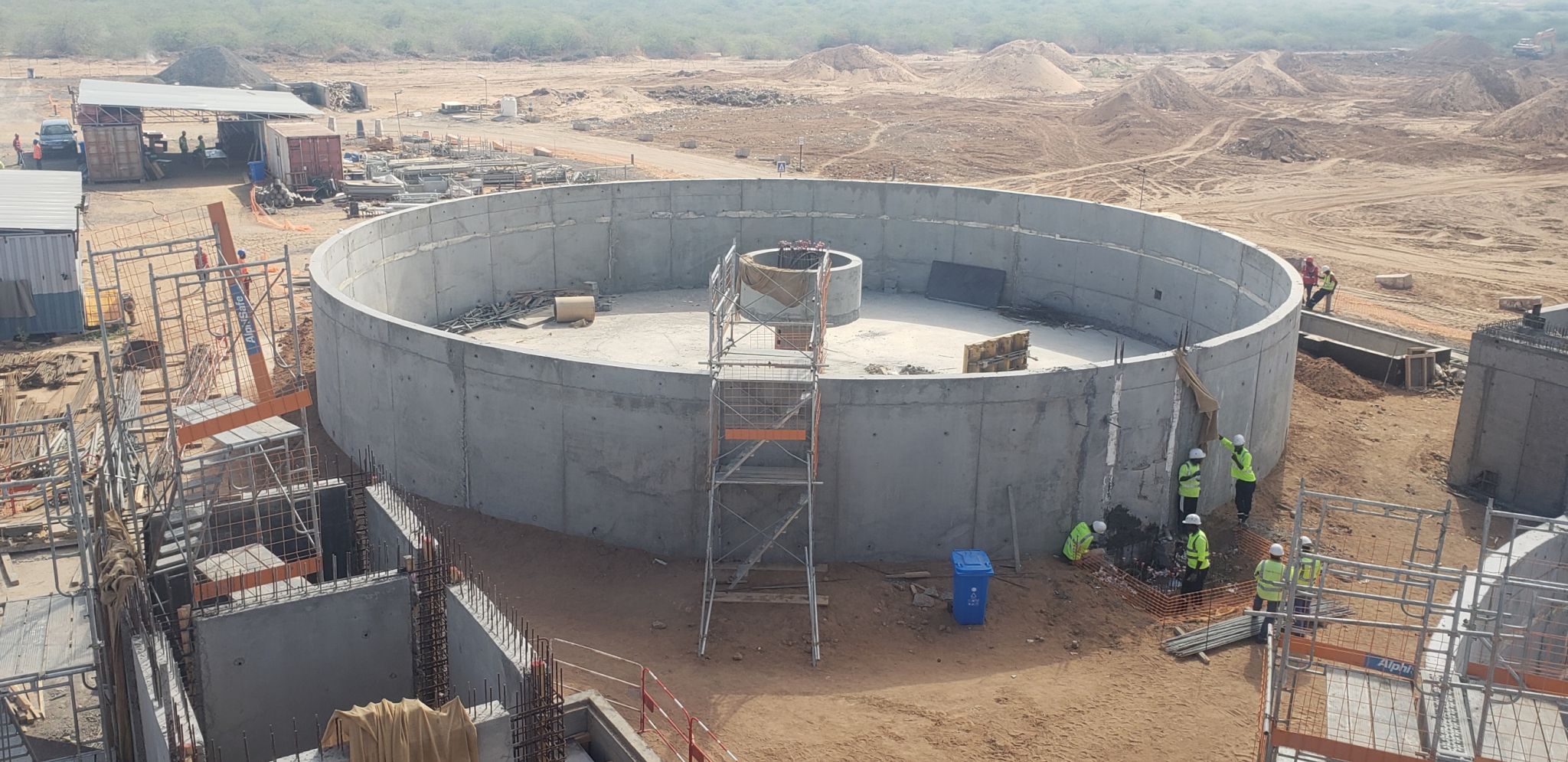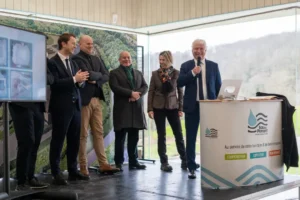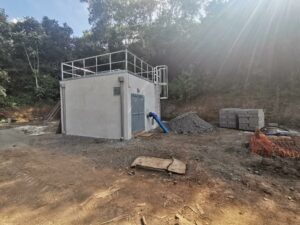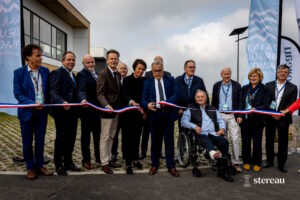The Republic of Djibouti ranks among the countries most affected by water stress, facing persistent and acute challenges in water management. In this context, the National Water and Sanitation Office of Djibouti (ONEAD) has identified the development of the water sector as a national priority.
The Douda wastewater treatment plant represents a significant milestone in efforts to improve water resource management in Djibouti. Located in Djibouti City, this facility plays a crucial role in treating the city’s effluents, thereby reducing pollution and safeguarding local water resources.
Designed and constructed by Stereau in 2014, it is currently undergoing an extension entrusted to the consortium of Stereau – Vinci Construction. This large-scale project will enhance Djibouti’s wastewater treatment capabilities and increase the reuse of treated wastewater (REUT) for irrigation purposes in agricultural and arboricultural areas.
With a capacity increased to 80,000 population equivalents, the future wastewater treatment plant will help reduce the environmental impact of wastewater, preserve water resources, and create healthier living conditions for the people of Djibouti. The wastewater treatment plant will notably prevent the discharge of effluents into the Douda River, which flows directly into the Gulf of Aden connecting the Red Sea and the Arabian Sea via the Bab-el-Mandeb Strait.
Financed by the French Development Agency (AFD) and the European Union, this extension is in perfect alignment with the United Nations’ Agenda 2030, the European Union’s ‘Green Deal,’ and will contribute to achieving the Sustainable Development Goals (SDGs).
- SDG 6: Ensure access to water and sanitation for all and sustainable management of water resources.
- SDG 11: Sustainable cities and communities.
- SDG 13: Take urgent action to combat climate change and its impacts.
